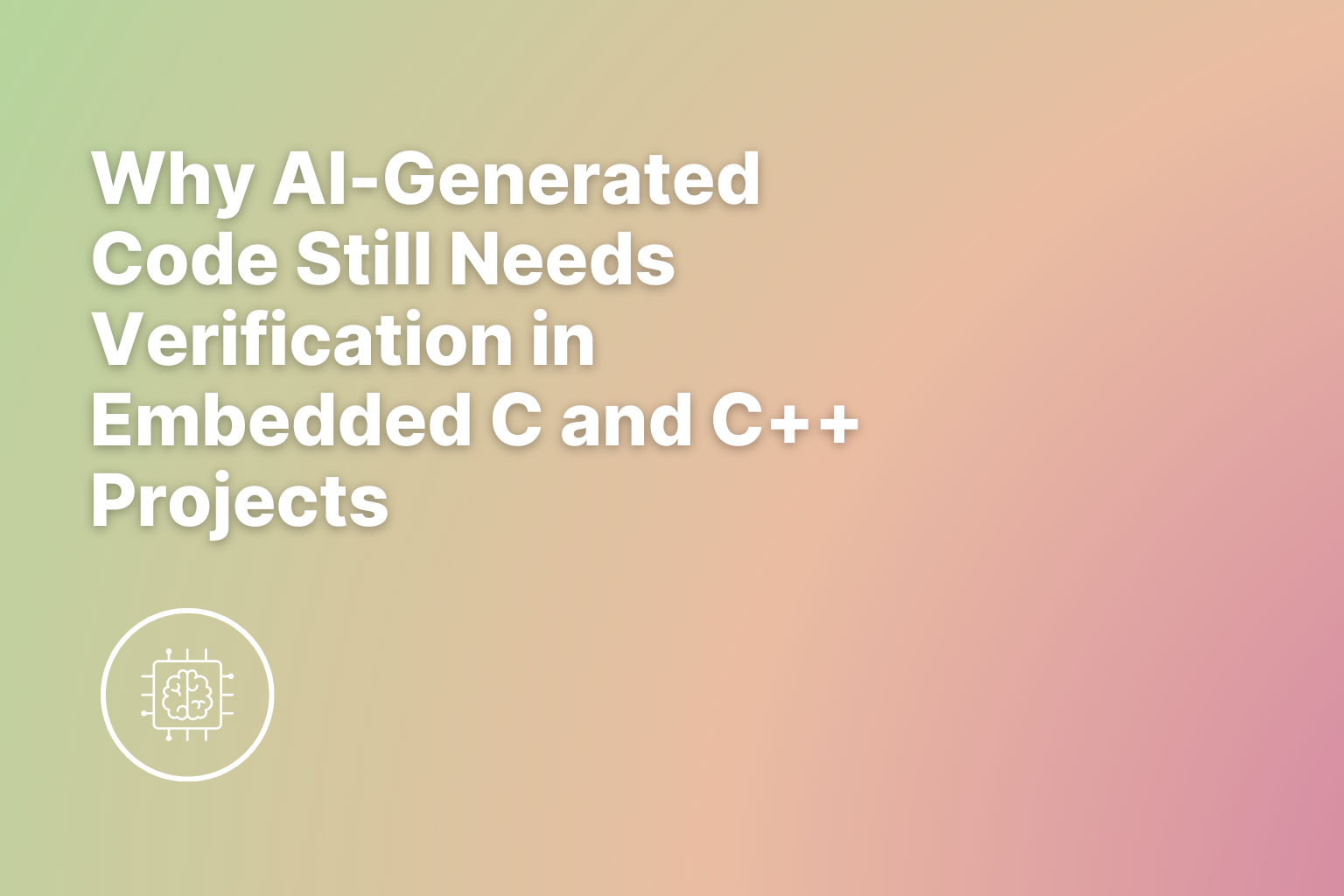Artificial Intelligence (AI) is transforming software development, offering tools that can generate code, automate repetitive tasks, and enhance developer productivity. However, in embedded systems, AI faces unique challenges. These systems have strict hardware constraints and require precise timing, memory efficiency, and energy-aware coding, which current AI models often struggle to achieve.
1. The Rise of AI-Powered Code Generation
AI adoption in software development has grown rapidly. According to GitHub’s 2024 report, over 90% of developers now use AI coding tools such as Copilot, ChatGPT, and Claude.
While these tools can accelerate development and assist with routing coding tasks, most AI models are trained on open-source code, which primarily targets general-purpose platforms. This creates a gap in understanding the specific requirements of embedded hardware.
2. Where AI Struggles: The Hardware Reality Check
Generic AI models often fail in embedded contexts because they lack awareness of hardware constraints.
2.1 Timing and Determinism
Embedded applications rely on precise timing, such as interrupt latency and task scheduling. AI-generated code may compile successfully but introduce non-deterministic behavior, which can lead to unpredictable performance and missed deadlines.
2.2 Memory and Resource Constraints
AI tools often produce verbose or redundant code without considering stack/heap limitations, memory-mapped I/O, or cache behavior, critical in resource-constrained environments. Inefficient memory use can cause crashes, fragmentation, or degraded system performance.
2.3 Power Consumption and Energy Efficiency
Code structure significantly affects energy usage. Loops, branching, and memory access patterns impact power consumption, but AI lacks physical models to predict these effects, often producing suboptimal energy efficiency.
2.4 Real-Time and Safety-Critical Requirements
Embedded systems in safety-critical domains, like automotive and aerospace, must comply with ISO 26262 or DO-178C, which enforce traceability, verification, and predictable behavior. AI-generated code often lacks the documentation, traceability, and determinism required for certification, making safe deployment challenging without hardware-aware analysis.
3. Why LLMs Can’t Be Hardware-Aware (Yet)
Large Language Models (LLMs) are trained on text and open-source code, not execution traces or real hardware performance data. They cannot see compiler optimizations, assembly output, or MCU pipelines, and without a feedback loop from runtime profiling, AI code may be syntactically correct but inefficient in timing, memory and energy.
4. The Hidden Cost: From Functional Code to Performance Debt
Even functionally correct AI-generated code can create performance debt in embedded systems. Inefficiencies in memory usage, CPU cycles, or energy consumption accumulate over time, requiring developers to profile, analyze, and manually refactor the code (consuming valuable time and resources).
Without hardware-aware analysis, AI-generated code may slowly erode performance, forcing teams to fix inefficiencies that could have been avoided with a performance-focused workflow.
5. The Next Step: Making AI Hardware-Aware
Bridging the gap between AI code generation and real embedded hardware performance requires hardware-aware optimization tools.
5.1 Closing the Feedback Loop
Integrating AI with continuous performance profiling enables optimizations guided by real runtime data. This ensures AI-generated code meets embedded system constraints for timing, memory, and energy.
5.2 WedoLow MCP Server: The Performance Companion You Need
WedoLow MCP Server analyzes AI-generated C/C++ code for timing, memory, and energy, and applies verified optimizations automatically. It ensures runtime performance, reduces memory overhead, and lowers power consumption, all while preserving functional behavior.
This MCP Server serves as a single authoritative companion, transforming AI-generated code into hardware-aware, high-performance embedded software ready for real-world execution.
5.3 A Hybrid Workflow for the Future
A hybrid workflow combines the speed of AI code generation with the rigor of hardware-aware analysis:
- AI generates initial code rapidly, handling repetitive tasks or prototypes.
- WedoLow MCP Server validates and optimizes this code against real hardware constraints.
- Developers remain in control, reviewing suggestions, refining architecture, and focusing on critical features.
This approach ensures AI accelerates development without compromising performance, reliability, or safety, enabling teams to produce efficient, predictable, and hardware-aware embedded software.
6. Conclusion: The Future of AI in Embedded Systems
AI code generation is a breakthrough, but its true value emerges when combined with hardware-aware optimization. The next generation of development tools will merge speed, intelligence, and real-world performance. Embedded software deserves AI that understands both syntax and silicon.
Curious how AI-generated code behaves on your hardware? Explore how WedoLow MCP Server bridges AI coding and real performance.


.svg)





.svg)